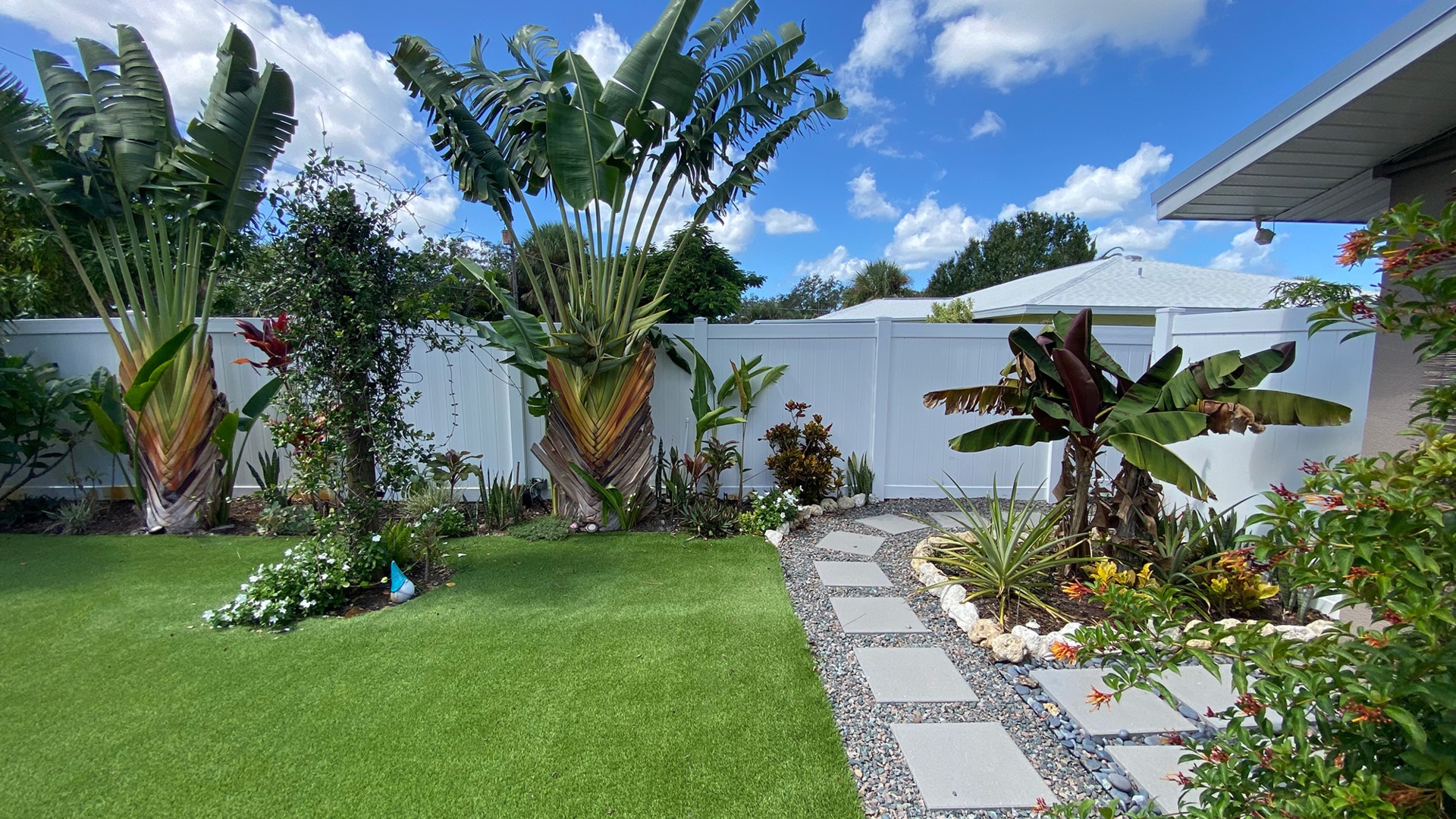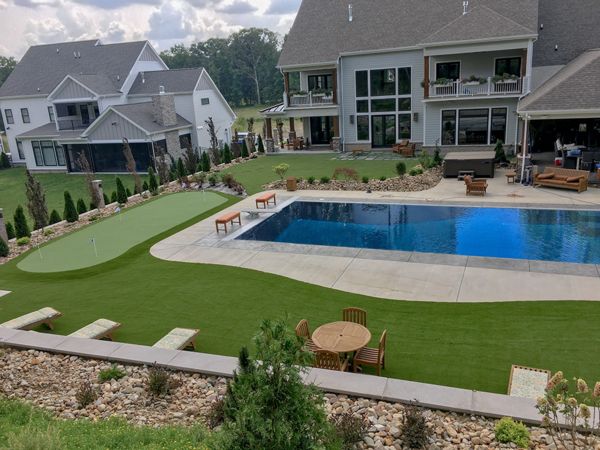
Here are some ways in which artificial grass can be considered eco-friendly
One of the most significant environmental benefits of artificial grass is its ability to conserve water. Natural grass lawns require a substantial amount of water for irrigation to stay healthy and green, especially in arid regions. Artificial grass eliminates the need for regular watering, helping to reduce water consumption.
Maintaining natural grass often involves the use of pesticides and fertilizers to control pests and promote growth. Artificial grass eliminates the need for these chemicals, reducing potential harm to the environment and wildlife.
Once installed, artificial grass requires less maintenance than natural grass, which means fewer emissions from lawnmowers, trimmers, and other lawn care equipment. This can contribute to a reduction in greenhouse gas emissions.
Gas-powered lawn mowers and other lawn equipment can release pollutants into the air. With artificial grass, there is no equipment emissions, improving air quality in the vicinity.
Runoff from natural grass lawns can carry fertilizers, pesticides, and other chemicals into nearby water bodies, leading to water pollution. Artificial grass does not contribute to this.
From conserving water resources and reducing the need for harmful chemicals to decreasing carbon emissions and preventing air and water pollution, artificial turf proves to be an environmentally responsible choice.

We offer personalized estimates tailored to your project's precise specifications. With our extensive network of national distributors, your order can be swiftly processed within days. When you're prepared to begin enjoying savings on your lawn, don't hesitate to reach out. Contact us online or call (866) 779-8873 for a consultation.